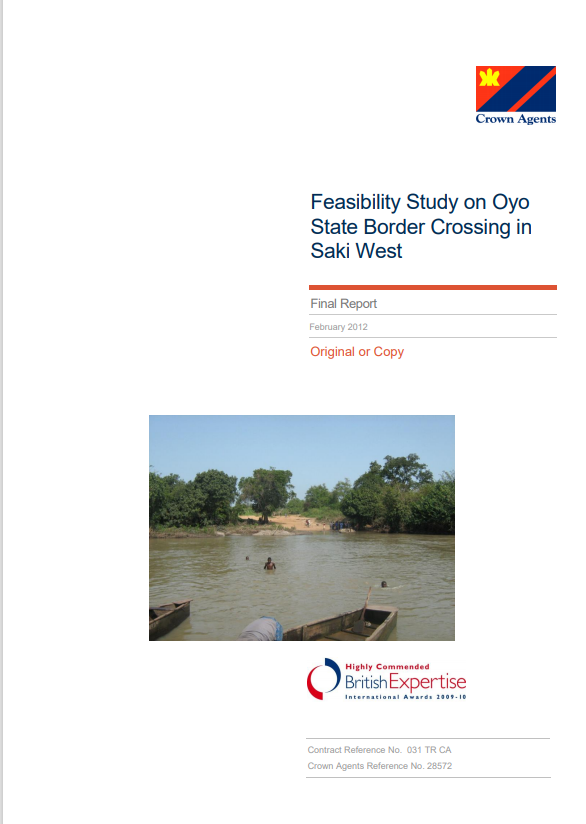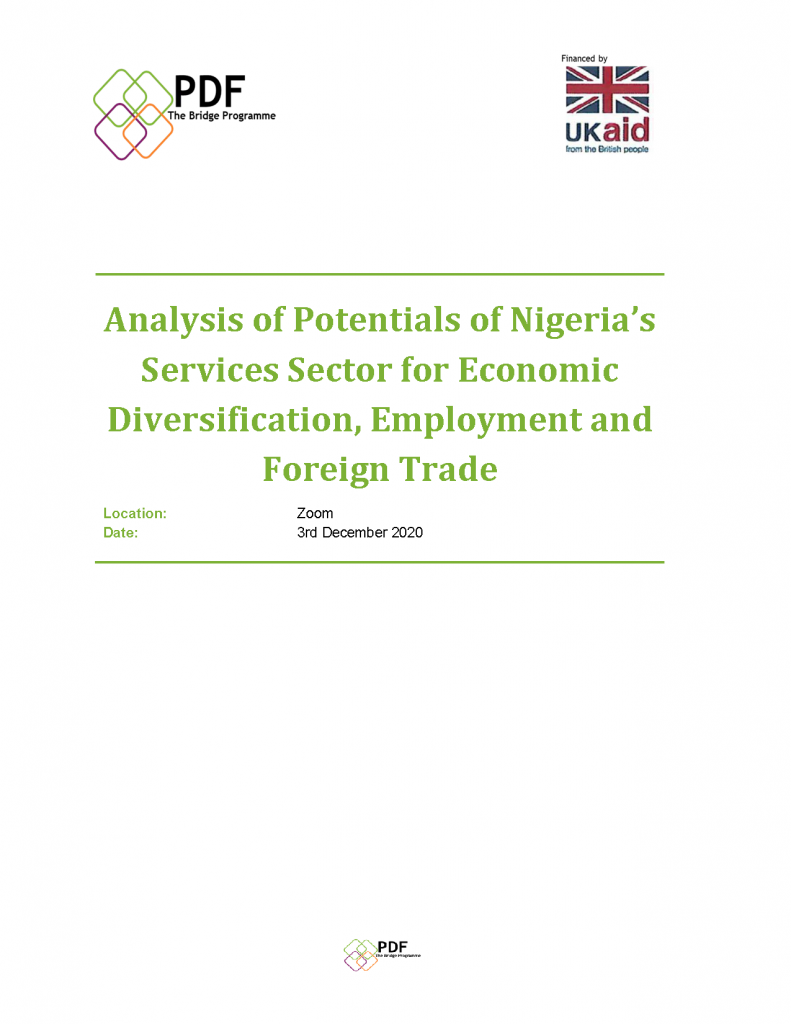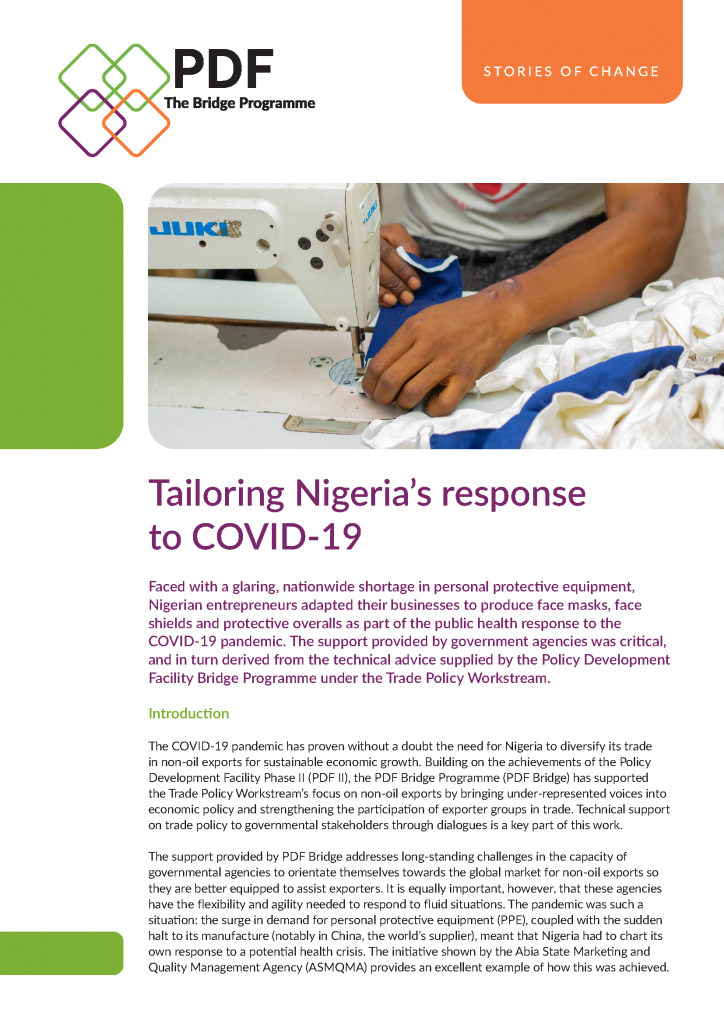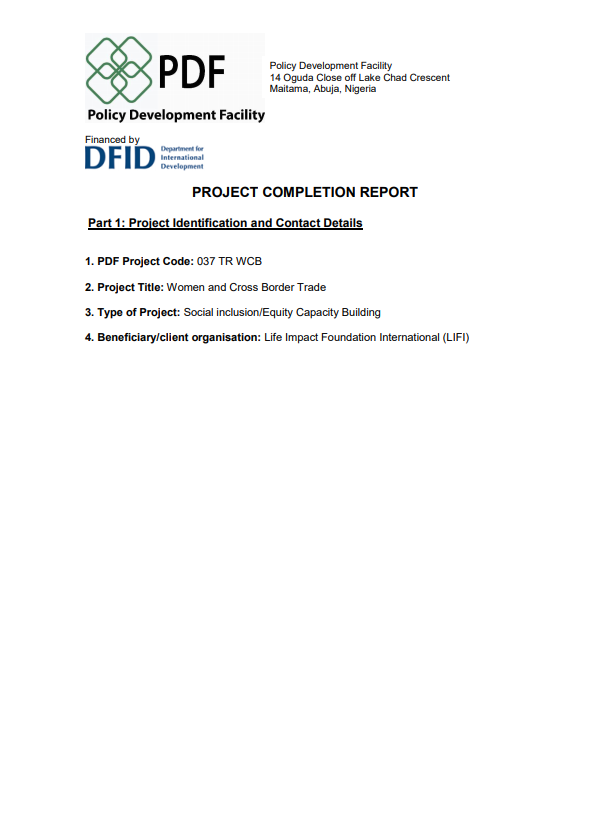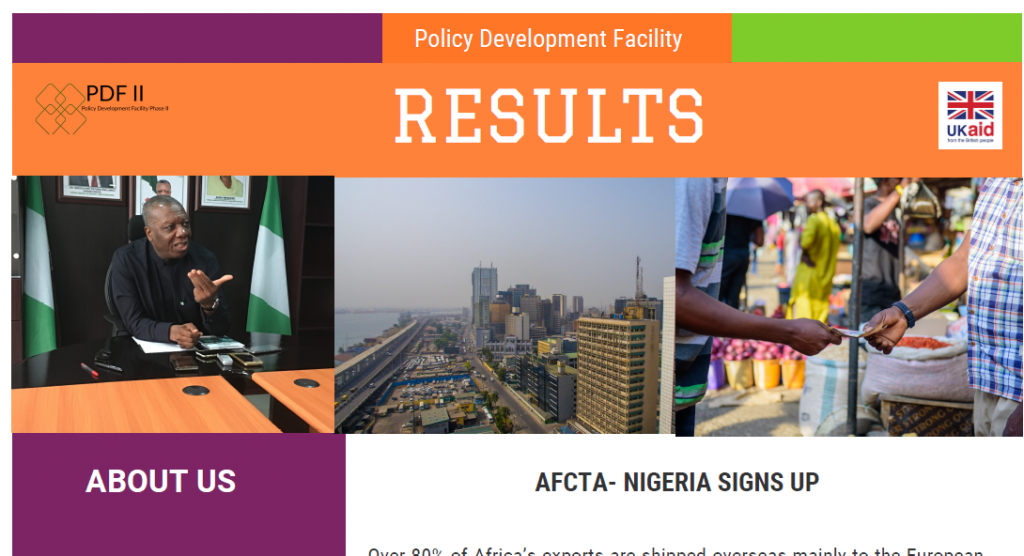Capacity Building for Trade Associations (Day 2)
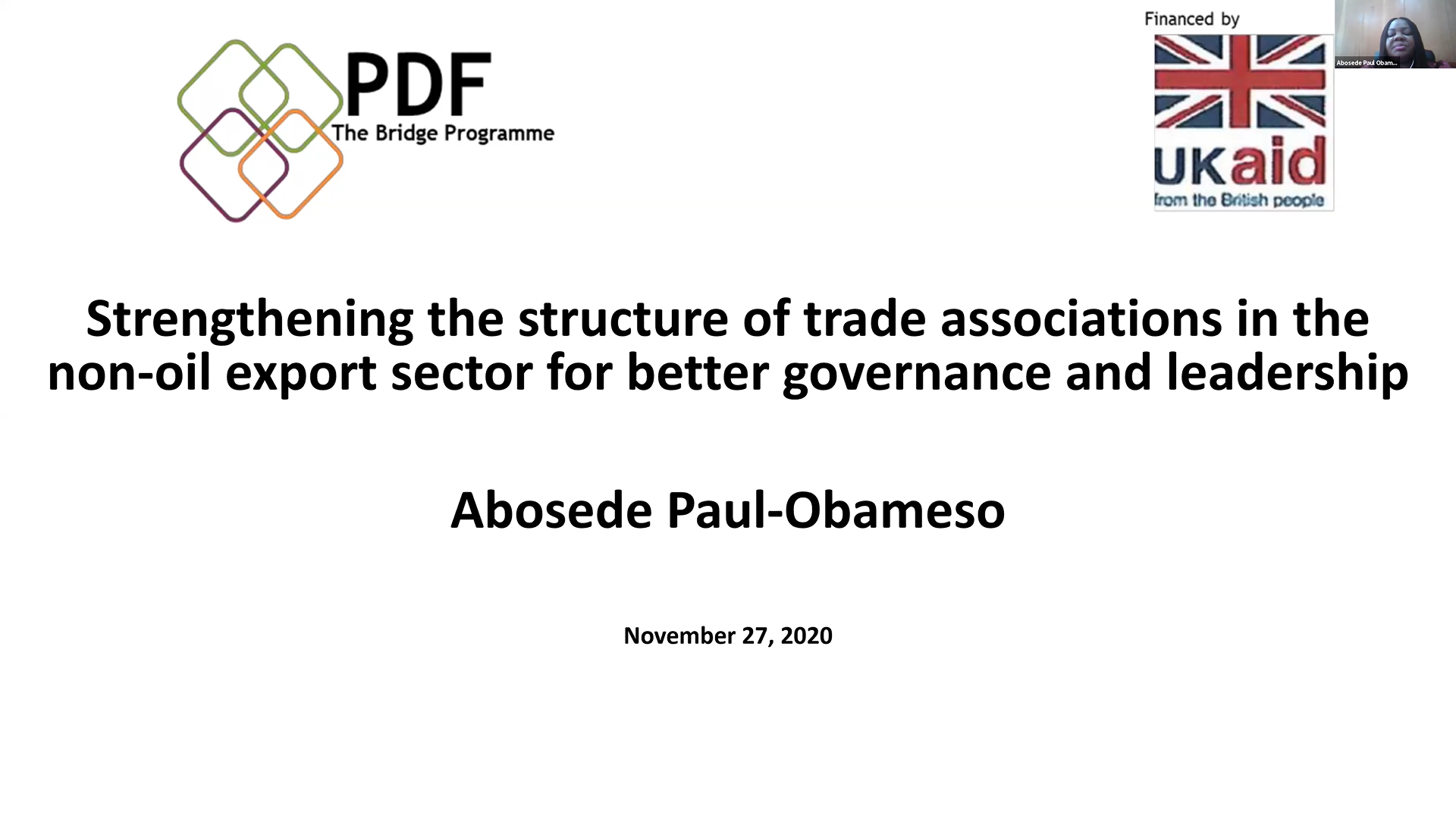
Associated resources
This is the report from a feasibility study conducted on the possibility of constructing a border post and associated infrastructure at Saki West, Oyo State. Conducted in 2012 and funded by FCDO Nigeria Policy Development Facility (FCDO-PDF).
A roundtable event on the potentials of exporting the services sector in Nigeria. At the Roundtable, it was noted that among business owners and exporters, there is little understanding of what services export entails. Many businesses engage in service exports but are not aware of this. Understanding the four modes of services – Cross border trade, Consumption abroad, Commercial presence, and Presence of natural persons – is important for business growth. To achieve this, stakeholders including the NEPC will need to conduct capacity building and sensitisation workshops for exporters, working with relevant business associations.
With the global COVID-19 pandemic came the need for local manufacturers to step up to the challenge and produce face masks, face shields, and PPEs due to dwindling supplies caused by high demand the world over. The support provided by government agencies to these entrepreneurs was critical, this in turn was derived from the technical advice supplied by the PDF Bridge programme under the Trade Policy Workstream through dialogues, studies, and roundtable events. The workstream focuses on non-oil exports by bringing underrepresented voices into economic policy and strengthening the participation of exporter groups in trade. The workstream engaged with representatives of Abia State Government during its dialogues particularly with the Director-General of the Abia State Marketing and Quality Management Agency (ASMQMA). This engagement led to increased capacity and redirection of strategy for the Aba Textile cluster in the production and distribution of finished goods. With help from the State Government’s agency on quality and standardization, Abia State Marketing and Quality Management Agency (ASMQMA), tailors generated an estimated $4-5million for the Nigerian economy from Abia State alone from the production of PPEs. This created a 110% increase in tailoring personnel.
This study conducted by PDF with support from FCDO (formerly DFID) shows that women who engaged in cross border trade contribute to food security by trading food products from areas of surplus to areas of deficit. The paper reveals that depending on how this trade is organized, these women have the potential to contribute significantly to household earnings and resources. This empowers women by giving them financial independence and control of their own resources.
Nigeria signed up to the AfCFTA on the 7th of July, 2019. This outlines how PDF contributed to the process that led up to the signing.

